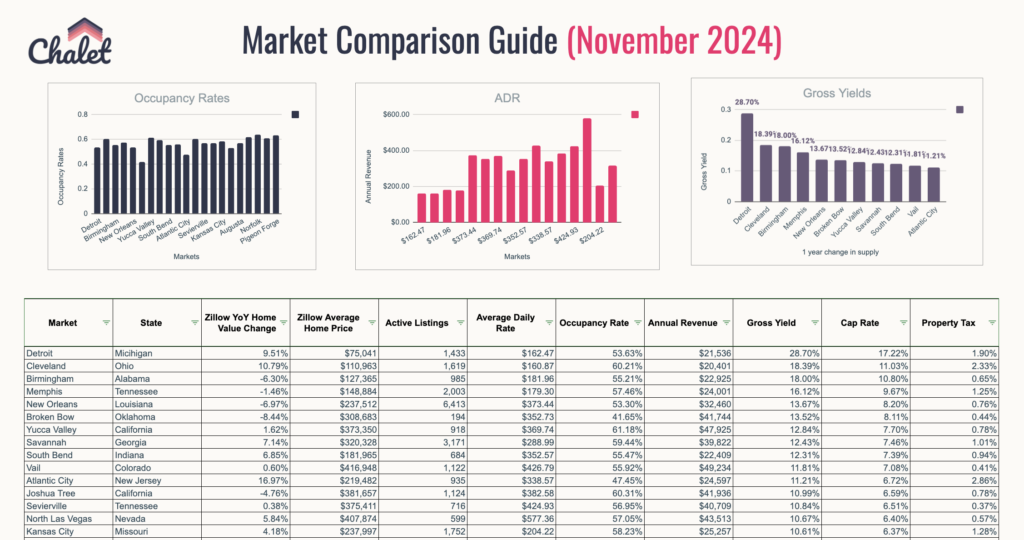Ithaca, New York, a city known for its vibrant culture and stunning natural beauty, has become a popular destination for tourists. As a result, the demand for short-term rentals like Airbnb has surged.
However, with this rise in popularity comes the need for regulation to ensure that these rentals operate within legal boundaries and do not negatively impact the community. In this comprehensive guide, we’ll explore the current short-term rental regulations in Ithaca, NY, and provide valuable resources for those looking to operate an Airbnb in the area.
Understanding Short-Term Rentals in Ithaca
Short-term rentals (STRs) refer to the rental of residential properties for a period of less than 30 consecutive days. These rentals, often facilitated by platforms like Airbnb, offer an alternative to traditional hotel accommodations and can range from entire homes to private rooms within a residence.
Current Regulations for Short-Term Rentals in Ithaca
Ithaca has implemented specific regulations to manage the growth of short-term rentals and mitigate potential issues related to housing affordability, neighborhood character, and community safety. Below are the key aspects of Ithaca’s STR regulations:
1. Zoning Requirements
Ithaca’s zoning laws play a crucial role in determining where short-term rentals can operate. The city is divided into various zoning districts, each with its own set of rules regarding STRs. Generally, short-term rentals are permitted in residential, commercial, and mixed-use zones, but specific regulations may vary.
2. Registration and Permitting
To operate a short-term rental in Ithaca, hosts must register their property with the city and obtain the necessary permits. This process typically involves submitting an application, paying a fee, and ensuring that the property meets all safety and health standards. The registration helps the city keep track of active STRs and enforce regulations effectively.
3. Occupancy Limits
Ithaca imposes occupancy limits on short-term rentals to prevent overcrowding and ensure the safety and comfort of guests. The maximum number of occupants allowed in an STR depends on the size of the property and the number of bedrooms. Hosts must adhere to these limits to avoid penalties.
4. Safety and Health Standards
All short-term rentals in Ithaca must comply with local safety and health standards. This includes having functional smoke detectors, carbon monoxide detectors, and fire extinguishers. Additionally, properties must be well-maintained and meet building code requirements.
5. Host Presence Requirements
In some zoning districts, Ithaca requires that the host be present during the guest’s stay. This regulation is aimed at preventing issues related to noise, parties, and other disturbances. Hosts must be available to address any concerns that arise during the rental period.
6. Taxation
Like many other municipalities, Ithaca requires short-term rental operators to collect and remit lodging taxes. This tax is typically a percentage of the rental fee and must be reported and paid to the city on a regular basis. Compliance with tax regulations is crucial to avoid fines and legal issues.
Top 200 Airbnb Rental Markets

Instantly compare top 200 short-term (Airbnb) rental markets in the US
Resources for Short-Term Rental Hosts in Ithaca
Operating a short-term rental in Ithaca involves navigating various regulations and requirements. Here are some resources to help hosts stay compliant and succeed in the STR market:
1. Ithaca City Website
The official Ithaca city website provides comprehensive information on zoning laws, registration processes, and safety requirements for short-term rentals. Hosts can find application forms, fee schedules, and contact information for city departments.
Website: City of Ithaca
2. Tompkins County Assessment Department
The Tompkins County Assessment Department can assist hosts with property tax information and ensure that their short-term rental is correctly assessed and taxed.
Website: Tompkins County Assessment Department
3. Airbnb Host Resources
Airbnb offers a range of resources for hosts, including guides on local regulations, safety tips, and best practices for running a successful short-term rental.
Website: Airbnb Host Resources
4. Local Real Estate Professionals
Real estate agents and property management companies in Ithaca can provide valuable insights into the local STR market, including advice on property selection, pricing strategies, and regulatory compliance.
5. Legal Advisors
Consulting with a legal advisor who specializes in real estate and short-term rental law can help hosts navigate complex regulations and avoid potential legal pitfalls.
Conclusion
Short-term rentals, like those listed on Airbnb, have become an integral part of Ithaca’s tourism landscape. While these rentals offer numerous benefits to both hosts and guests, it is essential for operators to understand and comply with local regulations. By following zoning requirements, obtaining necessary permits, adhering to safety standards, and staying informed about tax obligations, hosts can ensure a successful and legally compliant short-term rental operation in Ithaca, NY.

